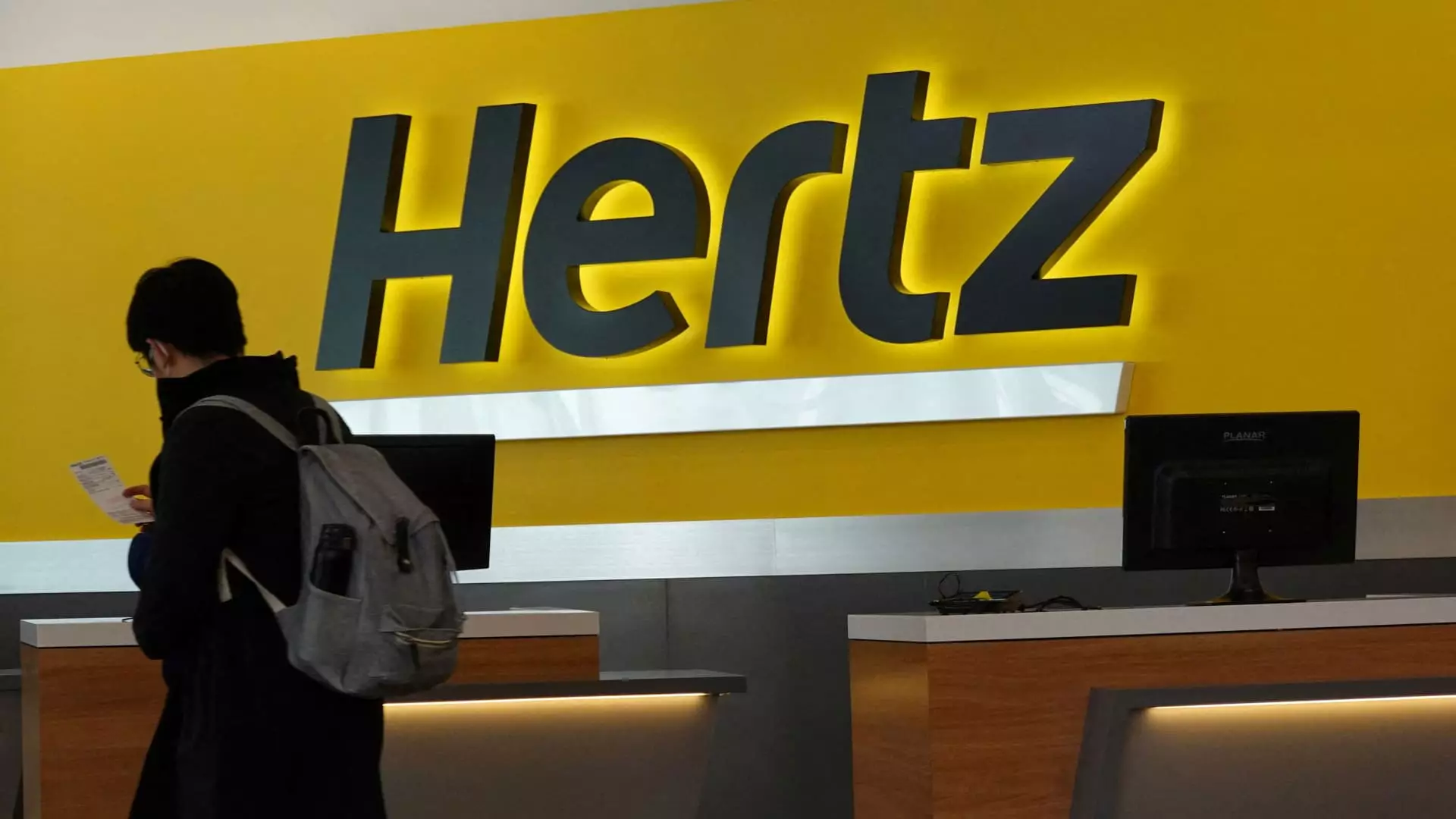The financial landscape surrounding Hertz Global Holdings has taken a sharp downturn, particularly after the company announced disheartening earnings results for the first quarter. Investors reacted with fervor, resulting in a staggering 20% decline in share prices, highlighting a crisis that appears to be more than a fleeting issue. The company’s grim loss per share of $1.12, which surpassed analysts’ expectations of $0.97, reflects a troubling trend for a sector that has struggled to maintain revenue levels amid shifting market dynamics. The emergence of a $250 million stock offering further compounded investors’ angst. It’s a brutal reality check for a company once perceived as a leader in the rental car industry, now seemingly grasping for stability.
The Alarming Drop in Consumer Sentiment
What’s particularly troubling is that Hertz’s disappointing results came at a time when the rental market should have been experiencing a revival. Factors such as President Donald Trump’s auto tariffs have set the stage for rampant inflation in vehicle prices, which, coupled with a dip in tourism and consumer confidence, has wreaked havoc on rental bookings. Consumers are currently hesitant to rent cars, a trend that is less about demand and more about shifting priorities in travel and spending behavior. Hertz’s plan to reduce the number of cars alone poses risks, leaving the company vulnerable during peak rental seasons. As CEO Gil West noted, their focused efforts on cost management and fleet optimization reflect the desperation underlying the company’s strategy; it suggests that Hertz is battling not merely to sustain its revenue but to reformulate its very business model.
A Desperate Strategy
Hertz’s “Back-to-Basics Roadmap” is predicated on optimizing vehicle utilization, a strategy that, while sound in theory, exposes the company to criticisms regarding its long-term viability. The initiative indicates an attempt to claw back to profitability, but it raises questions about the underlying demand for rentals. In such an uncertain environment, reducing the fleet seems counterintuitive; it could lead to a situation where supply cannot meet even the minimal demands of a recovering market. West’s statement about wanting to create “more demand than we can satisfy” signals a hopeful aspiration, but it also highlights an awareness of the current inadequacies in demand, reverberating throughout the corporate structure. Corporate maneuvers may yield temporarily favorable results, but can they deliver sustainable growth?
Investor Anxiety and Market Sentiment
Beyond the immediate financial fallout, there’s a deeper concern regarding investor sentiment. The stock had surged earlier in the year, primarily propelled by the large stake acquired by Bill Ackman’s Pershing Square Capital. This volatile fluctuation raises ethical questions about market practices; are corporate players merely capitalizing on short-term gains without keeping an eye on structural integrity? Barclay’s analyst Dan Levy aptly encapsulated this sentiment as he examined the current challenges that suggest a net-negative outlook for Hertz. The dissonance between market optimism earlier in the year and the grim financial realities now facing the company starkly illustrates the unpredictable nature of corporate growth trajectories in nuanced markets.
The Path Forward
It’s critical that Hertz not only stabilize but also reassess its broader strategies in light of these unfavorable trends. The heavy reliance on a stock offering implies a company that may be prioritizing immediate fiscal concerns over comprehensive long-term strategies. Executives must exhibit a blend of resilience and foresight when navigating the balance between operational efficiency and market demand. The months ahead will be telling for Hertz, which must leverage its assets wisely to stave off further decline while also fostering a sense of security among investors.
While Hertz’s journey may involve temporarily painful adjustments, the survival of the company hinges on its ability to pivot efficiently amidst an evolving market landscape. The time for fundamental change is now, and whether the management can rise to meet this challenge remains to be seen.

